Riska kapitāls daudzsološiem jaunuzņēmumiem
Augsta riska (venture) investīcijas uzņēmumu pašu kapitālā veicam uz globālu tirgu vērstos tehnoloģiju jaunuzņēmumos — vēlams, ar reģistrētiem patentiem.

Anno 2005
Latvijas uzņēmumiem ir milzīgs inovāciju potenciāls, un Proks Capital gādā, lai tas atraisītos pa īstam. Mēs atbalstām inovatīvus projektus, kuru straujajai izaugsmei ticam.
Augsta riska (venture) investīcijas uzņēmumu pašu kapitālā veicam uz globālu tirgu vērstos tehnoloģiju jaunuzņēmumos — vēlams, ar reģistrētiem patentiem.
Ar mezanīna finansējumu atbalstām veiksmīgu uzņēmumu tālāko izaugsmi.
Mēs piekopjam viedo investīciju (smart money) pieeju un strādājam ciešā partnerībā ar investīciju saņēmēju komandām — dalāmies bagātīgajā pieredzē par uzņēmumu stratēģisko attīstību, operacionālo vadību un finanšu jautājumiem.
Produktam jābūt orientētam uz globālajiem tirgiem un ar ievērojamām konkurences priekšrocībām.
Produktam jābalstās uz tehnoloģijām, kurām ir “know how”. Vēlams, lai tehnoloģijas būtu patentētas.
Dibinātājiem jābūt pamatotam biznesa modelim, produkta virzībai tirgū un izpildāmam biznesa plānam.
Īpašniekiem jābūt gataviem 100% laika veltīt jaunuzņēmuma attīstībai.
Komandas galvenai motivācijai jābūt jaunuzņēmuma attīstība līdz globālā līdera līmenim.
Darbības sākumposmā jaunuzņēmuma galvenajai mītnei jābūt Latvijā.

Investīciju uzņēmuma Proks Capital valdes loceklis.
Biznesa eņģelis, Latvijas Biznesa eņģeļu tīkla (LatBAN) loceklis, balvas “Gada investors” laureāts 2015., 2016. un 2018. gadā.
Vadībzinātņu doktors, augstskolas RISEBA Ekonomikas un finanšu katedras profesors.
Latvijas Zinātnes padomes eksperts ekonomikā un uzņēmējdarbībā.

Kopš biedrības dibināšanas 2014. gadā tās mērķis ir paplašināt un attīstīt investoru tīklu Latvijā, organizēt investīciju sesijas un atbalstīt jaunus un perspektīvus projektus. Anatolijs Prohorovs ir LatBAN loceklis.
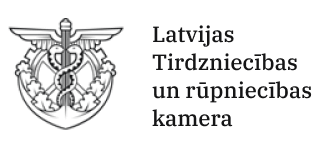
Lai īstenotu, finansētu un popularizētu pētījumus tautsaimniecībā, Latvijas lielākā uzņēmēju apvienība — Latvijas Tirdzniecības un rūpniecības kamera — 2014. gadā nodibināja Krišjāņa Valdemāra fondu. Kopš fonda izveides Anatolijs Prohorovs brīvprātīgi piedalās tā pētniecības darbā un ir fonda padomes loceklis.
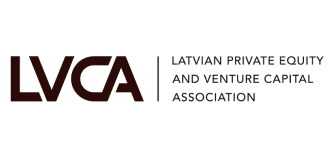
LVCA dibināšanas mērķis ir veicināt riska kapitāla nozares attīstību Latvijā. Asociācija apvieno 40 organizācijas — lielāko daļu riska kapitāla investoru valstī. Anatolijs Prohorovs bija LVCA valdes loceklis no 2011. līdz 2017. gadam.
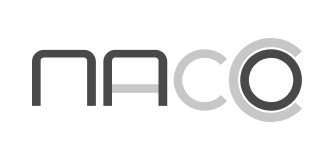
No 2011. gada Anatolijs Prohorovs bija uzņēmuma padomes loceklis un atbalstīja Naco Technologies trīs investīciju raundos. 2015. gadā par uzņēmuma pārdošanu Vācijas tehnoloģiju koncernam Schaeffler viņš ieguva 1. vietu konkursā “Gada investors” kategorijā “Gada pārdošana”.
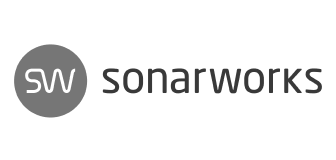
Kopš 2015. gada Proks Capital atbalsta audiotehnoloģiju uzņēmumu Sonarworks — vienīgo Latvijas jaunuzņēmumu, kuram izdevies sasniegt A sērijas investīciju posmu, kopumā piesaistot 7,8 miljonus eiro. Anatolijs Prohorovs ir Sonarworks padomes loceklis. Par investīcijām Sonarworks viņš 2016. un 2018. gadā saņēma godalgu “Gada investors”.
Vadībzinātņu doktors (Dr. sc. admin.) Anatolijs Prohorovs ir Biznesa, mākslas un tehnoloģiju augstskolas RISEBA profesors, kā arī Latvijas Zinātnes padomes eksperts.
Anatolijs Prohorovs ir Biznesa, mākslas un tehnoloģiju augstskolas RISEBA Ekonomikas un finanšu katedras profesors, maģistra studiju programmas “Starptautiskās finanses” padomes loceklis un augstskolas Zinātniskās padomes loceklis. Lasa lekcijas “Riska kapitāla investīcijas” un “Jaunuzņēmumu radīšana, darbības organizācija un finansēšana”.

Anatolijs Prohorovs ir autors vairāk nekā 30 zinātniskajām publikācijām, to skaitā monogrāfijai “Uzņēmumu ienākumu nodoklis Latvijā un Igaunijā: tā ietekme uz uzņēmējdarbību, investīcijām, bezdarba līmeni, nodokļu ieņēmumiem un valsts ekonomisko izaugsmi”. Regulāri sniedz eksperta viedokli Latvijas vadošajam biznesa žurnālam Forbes.
This article analyzes the growth of the economy of the Baltic States and its sustainability before and during the COVID-19 pandemic. To identify the reasons for the differences in the economic growth of the Baltic countries, a comparison of the main indicators of international competitiveness and their growth rates is made.
The highest indicators of economic growth in 2017–2019, as well as economic stability in 2020–2021, were in Estonia. The growth and sustainability of the Lithuanian economy was slightly lower than in Estonia. But on a number of indicators, including the growth rate of GDP per capita, exports, productivity, the volume of accumulated FDI, the growth of net turnover of companies, Lithuania was significantly ahead of Estonia, and in terms of purchasing power parity, Lithuania was ahead of Estonia.
This study concludes that the main reasons why Latvia’s international competitiveness lags behind Estonia and Lithuania, and as a result, lower economic growth …
Companies and countries have needed to adapt their activities to the consequences of the Russian war in Ukraine. The analysis in this article shows that both the Russian war in Ukraine and the subsequent trade restrictions have become a powerful trigger, significantly increasing the level of inflation and exacerbating the existing issues of economies. As a result, the confrontation between the West and Russia has greatly escalated, which will have a long-term, large-scale negative impact on most European companies and economies. There could also be a lasting restructuring of world trade. The article notes that not only the end date of the war in Ukraine may be important for business and economies, but also which of the trade and financial restrictions can be lifted from Russia, and when. The article also makes recommendations that may help company leaders plan, in a timelier and more accurate fashion, the changes necessary to maintain company sustainability
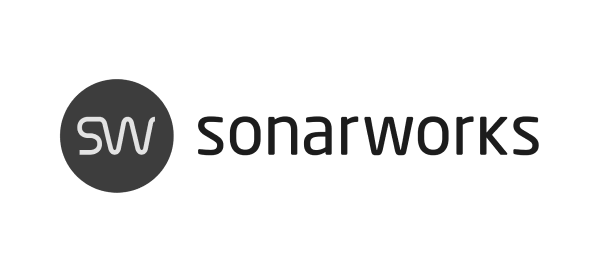
2012. gadā dibinātais audiotehnoloģiju jaunuzņēmums ir Latvijas biznesa veiksmes stāsts. Sonarworks radītās tehnoloģijas izmanto vairāk nekā 45 000 ierakstu studiju visā pasaulē, uzņēmumam pieder četri tehnoloģiju patenti. Proks Capital kļuva par Sonarworks investoru 2015. gadā, trijos raundos ieguldot uzņēmumā riska kapitālu un piedaloties uzņēmuma stratēģiskajā vadībā. Ar Proks Capital un citu investoru palīdzību Sonarworks piesaistīja 7,8 miljonus eiro un kļuva par pirmo Latvijas uzņēmumu, kurš ir sasniedzis tā dēvēto A sērijas investīciju līmeni.
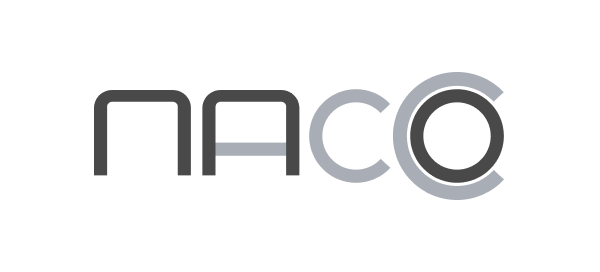
Proks Capital kļuva par nanopārklājumu ražotāja Naco Technologies investoru 2011. gadā un līdz 2015. gadam piedalījās trīs riska kapitāla investīciju raundos. Anatolijs Prohorovs pārstāvēja Proks Capital uzņēmuma padomē, uzraugot veiktās investīcijas un piedaloties Naco Technologies stratēģiskās attīstības īstenošanā. 2015. gadā uzņēmumu Naco Technologies nopirka vācu tehnoloģiju koncerns Schaeffler Group. Latvijas investoru aprindās Proks Capital izeja (exit) tika atzīta par gada veiksmīgāko pārdošanas darījumu. Naco Technologies lielākais sasniegums pirms pārdošanas ir izstrādātā ātrākā fizikālās tvaiku nogulsnēšanas (PVD – physical vapour deposition) metode, kas kļuva par pasaules mēroga inovāciju nanopārklājumu jomā.
Kā ziņo nekustamo īpašumu aģentūra “Kivi Real Estate”, šis ir viens no 2023. gada nozīmīgākajiem investīciju darījumiem industriālo īpašumu segmentā Latvijā. Darījumu veiksmīgi noslēdza Latvijas investors, kas apliecina pozitīvu tendenci tirgū – augstas kvalitātes A klases aktīvus var iegādāties ne tikai Baltijas reģiona fondi, bet arī privātie investori. Objektu komplekss ietver 3.3 hektāru lielu zemes gabalu un A klases energoefektivitātes ēku ar 10’567 kvadrātmetru lielu platību. Šobrīd ēka ir iznomāta papīra, iepakojuma un vizuālās komunikācijas produktu vairumtirgotājam AS “Antalis”, kas pieder Japānas “Kokusai Pulp & Paper” uzņēmumu grupai.